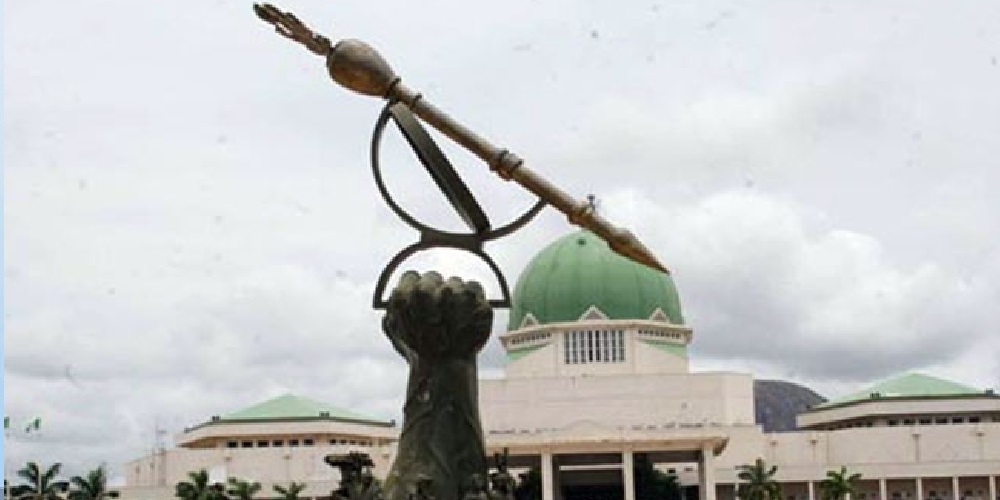News
Nigeria’s rebased inflation to hit 37% in 2026 – IMF

Nigeria’s headline inflation is projected to rise sharply to 37 per cent in 2026, according to the International Monetary Fund, which issued the forecast in its April 2025 World Economic Outlook report released on Tuesday.
The IMF said the new projection follows the rebasing of Nigeria’s Consumer Price Index by the National Bureau of Statistics in January 2025, and warned that persistent price pressures and structural constraints would likely keep inflation elevated over the medium term.
According to the Fund, inflation, which averaged 33.2 per cent in 2024, is expected to moderate slightly to 26.5 per cent in 2025 before surging to 37.0 per cent the following year.
The projection, however, has drawn mixed reactions from Nigerian economists, some of whom described the outlook as “excessively pessimistic” and detached from domestic policy realities.
The IMF report also downgraded Nigeria’s economic growth forecast for 2025, citing weakening global oil prices as a major risk to the country’s fiscal and external balances.
The Fund revised its 2025 GDP growth forecast for Nigeria downward by 0.2 percentage point to 3.0 per cent, down from 3.2 per cent. Growth for 2026 was also revised downward by 0.3 percentage point to 2.7 per cent.
The report stated, “Among the larger economies, the growth forecast in Nigeria is revised downward by 0.2 percentage point for 2025 and 0.3 percentage point for 2026, owing to lower oil prices.”
It noted that Nigeria, like many oil-exporting countries in Sub-Saharan Africa, remained highly vulnerable to external shocks, particularly commodity price declines, which continue to affect government revenue, trade balances, and investor sentiment.
Despite maintaining a current account surplus in 2024, Nigeria’s external position is expected to weaken.
The IMF projected that the current account surplus would shrink from 9.1 per cent of GDP in 2024 to 6.9 per cent in 2025, and further to 5.2 per cent in 2026.
This comes on the back of a balance of payments surplus of $6.83bn in 2024, according to data published by the Central Bank of Nigeria.
The surplus was largely driven by a goods trade balance of $13.17bn and a recovery in capital flows.
But analysts have warned that the surplus may not be sustained. Global investment bank JP Morgan said earlier this year that Nigeria could slide into a current account deficit if crude oil prices remain below its fiscal breakeven of $60 per barrel.
Fitch Ratings, however, gave a slightly more optimistic view. It projected that Nigeria’s current account surplus—estimated at 6.6 per cent of GDP in 2024—would average 3.3 per cent over 2025 and 2026, buoyed by improved local refining capacity and continued reforms in the energy sector.
On inflation, the IMF’s forecast follows Nigeria’s decision to rebase its CPI calculations. The National Bureau of Statistics announced in January 2025 that it had updated the base year from 2009 to 2024 to better reflect present-day consumption patterns.
Following the adjustment, inflation for January was recalculated at 24.48 per cent, down from 34.80 per cent recorded in December 2024 under the old base.
The inflation rate declined further to 23.18 per cent in February before edging up again to 24.23 per cent in March, a development that economists attribute to food price spikes, logistics bottlenecks, and foreign exchange volatility.
The Central Bank of Nigeria retained its Monetary Policy Rate at 27.5 per cent at its February meeting, noting the need to sustain tightening in the face of sticky inflation.
With both inflation and money supply rising in March, the CBN may be compelled to consider further hikes in its next policy meeting.
While the IMF did not provide any justification for the inflation projection, Nigerian economists have expressed reservations over the severity of the projection.
Adewale Abimbola, a Lagos-based economist, told The PUNCH that the IMF’s 37 per cent forecast may be overstated.
“Since the rebasing, inflation has hovered around 23 to 24 per cent. Even in 2024, when inflation was high and unrelenting, it averaged 33 per cent. So, I believe the IMF’s 37 per cent projection for 2026 is exaggerated,” he said.
Abimbola also offered recommendations for moderating inflation: “We need stronger support for the real sector to boost productivity, sustained CBN intervention to stabilise exchange rates, security enhancement in food-producing states, and continuation of the naira-for-crude policy to help manage petrol prices.”
Also speaking, economist and CEO of the Centre for the Promotion of Private Enterprise, Dr Muda Yusuf, said the Fund’s outlook did not fully account for domestic policy flexibility.
“Inflation in Nigeria is largely driven by supply-side constraints and exchange rate instability,” he said.
“If we address insecurity, especially in food-producing areas, food inflation—which is the largest component of headline inflation—will ease. If we also support manufacturers through fiscal measures and reduce production costs, inflation will moderate,” he added.
Yusuf criticised the IMF’s 37 per cent projection, arguing that it assumes no improvement in Nigeria’s fiscal discipline, oil output, or security architecture.
“I don’t see inflation getting to 37 per cent. That’s a worst-case scenario. If we manage our spending, reduce deficit financing, and improve oil earnings, our macroeconomic stability will improve. The outlook does not have to be that dire,” he said.
He further stressed the need for Nigeria to manage its monetary expansion carefully.
“We must keep money supply growth in check, reduce unnecessary borrowing, and avoid overheating the economy,” he added.
The President of the Nigerian Economic Society and former Head of Economics at the University of Ibadan, Prof. Adeola Adenikinju, agreed that Nigeria’s growth prospects have weakened but attributed this partly to global economic trends.
“The trend is consistent with what’s happening in other parts of the world. We are likely to post lower growth this year due to weak oil prices and low output,” he said.
Adenikinju added that local issues such as security in agricultural zones, high transport and energy costs, and poor infrastructure were worsening the outlook.
“These challenges have a ripple effect on output and inflation. Food prices will rise, and productivity will suffer,” he said.
He warned that the government’s expansionary fiscal stance might further fuel inflation if not managed prudently.
“If high spending leads to wider deficits financed by borrowing—especially from the CBN—it will drive inflation. We also have to watch the exchange rate, which continues to weaken. That will further feed into prices,” he said.
He noted that with inflation and money supply rising again in March, the CBN may be forced to raise rates further, a move that could slow economic activity in the short term.
The IMF also pointed to weak income growth in Nigeria, projecting that real output per capita will grow by just 0.6 per cent in 2025 and 0.3 per cent in 2026.
These figures, far below the Sub-Saharan Africa average, underscore the country’s inability to translate headline growth into tangible welfare improvements for citizens.
Economists say this highlights the need for Nigeria to diversify its economy away from oil, invest in infrastructure, address insecurity, and create enabling conditions for private investment to thrive.
News
Reps Minority Caucus condemns unlawful detention of VDM, demands his immediate release

…says we can’t standby watch state agencies abuse their powers
The Minority Caucus of the House of Representatives has condemned in the strongest terms the arrest and continued detention of social campaigner and activist, Martins Otse, popularly known as Very Dark Man (VDM), by the Economic and Financial Crimes Commission (EFCC).
In a statement jointly signed by the HoR caucus leaders, Rep Kingsley Chinda, Leader, Rt. Hon. Dr. Ali. Isa J.C Minority Whip, Rt. Hon. Aliyu Madaki., Deputy Minority Leader,,Rt. Hon. George Ozodinobi
Deputy Minority Whip, the opposition leaders declared that:
“The disturbing trend of security and law enforcement agencies deploying their powers arbitrarily against citizens exercising their rights to free expression poses grave threats to our democracy.
“We must state clearly that such acts, cloaked in the guise of enforcement, erode public confidence in the rule of law and undermine the principles of accountability and transparency.
The caucus insisted that: “The arrest of Mr. Otse which reportedly took place without the issuance of a warrant is a direct violation of the 1999 Constitution of the Federal Republic of Nigeria (as amended) that guarantees the liberty of the citizen except in accordance with the due process of law. Sections 35(1) and 35(3) of the Constitution stipulate the conditions under which a person may be deprived of their liberty and require that any person arrested must be informed promptly of the reasons for their arrest and any charges against them.
“The EFCC, like every other agency of government, is bound by these constitutional provisions and must not act outside their bounds.
“Moreover, the continued detention of Mr. Otse beyond the constitutionally permissible period of 24 to 48 hours without being charged to court is not only an abuse of power, it is also a blatant affront to the principles of natural justice and fair hearing.
“The Constitution, under Section 35(4), provides that a person who is arrested or detained must be brought before a court of law within a reasonable time, which, in the case of an arrest without a warrant, shall not exceed two days.
“Any deviation from this is a breach of the citizen’s fundamental rights and a descent into lawlessness.
“As the voice of the opposition in the National Assembly, the Minority Caucus calls on the EFCC to immediately release Mr. Otse or charge him to court in accordance with the law.
“Arbitrary arrests and prolonged detentions of citizens for expressing dissenting or unpopular views must have no place in a democratic society.
“The preservation of liberty, due process, and respect for constitutional rights remain the bedrock of our republic. We will not stand idly by while state agencies abuse their powers to suppress voices that challenge the status quo in line with the laws.
News
Skype To Shut Down May 5 After Nearly 22 Years Of Operation

By Kayode Sanni-Arewa
Voice and video platform, Skype, is shutting down.
This development comes nearly 22 years after the platform came into existence.
On February 28, Microsoft announced it would retire Skype on May 5 to streamline its services and prioritise Teams for communication and collaboration.
In 2011, Microsoft acquired Skype for $8.5 billion. At the time of acquisition, the organisation stated that it planned to make Skype a central part of its communications strategy.
This plan, however, faced stiff competition from platforms like WhatsApp and Zoom.
Microsoft’s own Teams also gained traction, which affected Skype’s popularity.
Launched in 2003, Skype quickly became a revolutionary tool for free voice and video calls over the internet, amassing more than 300 million monthly users at its peak in the mid-2010s.
The shutdown will impact both free and paid Skype users, although Skype for Business will continue temporarily.
Microsoft has urged users to transition to Teams by visiting skype.com and utilising the “Start using Teams” feature. All Skype chats and contacts will remain accessible through Teams using the same login credentials.
News
Trump Orders Rebuilding, Reopening Of Notorious Alcatraz Prison To Keep ‘Most Ruthless, Violent Offenders’

By Kayode Sanni-Arewa
In a post on his Truth Social account on Sunday, Trump wrote he is “directing the Bureau of Prisons, together with the Department of Justice, FBI, and Homeland Security, to reopen a substantially enlarged and rebuilt ALCATRAZ” to house the US’s “most ruthless and violent Offenders”.
President Donald Trump has directed federal agencies to rebuild and reopen the notorious Alcatraz prison, more than 60 years after it was shut down.
In a post on his Truth Social account on Sunday, Trump wrote he is “directing the Bureau of Prisons, together with the Department of Justice, FBI, and Homeland Security, to reopen a substantially enlarged and rebuilt ALCATRAZ” to house the US’s “most ruthless and violent Offenders”.
Speaking to reporters at the White House after a weekend trip to Florida, the president said the move was “just an idea I’ve had” in response to frustration with “radicalised judges” who, according to him, insist that deportees receive constitutional protections, Al Jazeera reports.
“It’s a symbol of law and order,” he said.
The announcement comes as Trump’s administration faces increasing legal challenges over the use of an 18th-century law to deport individuals without due process.
The law, originally enacted during wartime, has been used by the administration to justify deportations of alleged gang members and criminals.
Trump has also “repeatedly floated the legally dubious idea” of sending US citizens convicted of violent crimes to a maximum-security prison in El Salvador, known as CECOT.
In a recent interview, the president said he “didn’t know” whether people in the US are entitled to due process rights. The US Constitution guarantees such rights under the Fifth Amendment, and the Fourteenth Amendment prohibits states from denying “equal protection of the laws”.
Alcatraz, which operated from 1934 to 1963, was once regarded as the most secure prison in the United States due to its location on an island surrounded by frigid waters and strong currents.
While 36 men attempted to escape in 14 separate incidents, no successful escapes were ever officially recorded. Five prisoners are listed as “missing and presumed drowned”.
The facility was shut down due to crumbling infrastructure and high operational costs. According to the Federal Bureau of Prisons, it was nearly three times more expensive to run than any other federal prison at the time.
Today, Alcatraz Island is managed by the National Park Service and attracts over a million tourists each year. It is also designated a National Historic Landmark.
Former House Speaker Nancy Pelosi, a Democrat whose congressional district includes Alcatraz, criticised the proposal. “It is now a very popular national park and major tourist attraction. The President’s proposal is not a serious one,” she wrote on
-

 News5 hours ago
News5 hours agoWhy ‘VeryDarkMan was arrested – EFCC
-

 Economy15 hours ago
Economy15 hours ago75.5% of rural Nigerians now live below poverty line — World Bank
-

 News16 hours ago
News16 hours agoMassive turnout as Bishop David Abioye holds first service in new church + Video
-

 News16 hours ago
News16 hours agoHow US-Based Yoruba Monarch Died After Brutal Assault In Oyo Palace, Allegedly Ordered By Alaafin Amid Supremacy Row With Ooni Of Ife
-

 Education7 hours ago
Education7 hours agoOver 1.5m candidates score less than 200 in 2025 – UTME
-

 Entertainment4 hours ago
Entertainment4 hours agoHow I narrowly escaped death in U.S hotel room – Seun Kuti
-

 News6 hours ago
News6 hours ago‘S3x is good, I enjoy it,’ Bishop Adejumo tells wives
-

 News8 hours ago
News8 hours agoTinubu to meet Gencos over N4tn electricity debt






